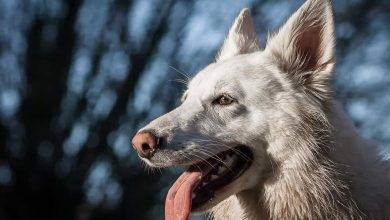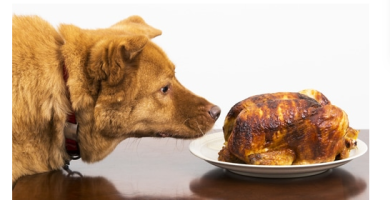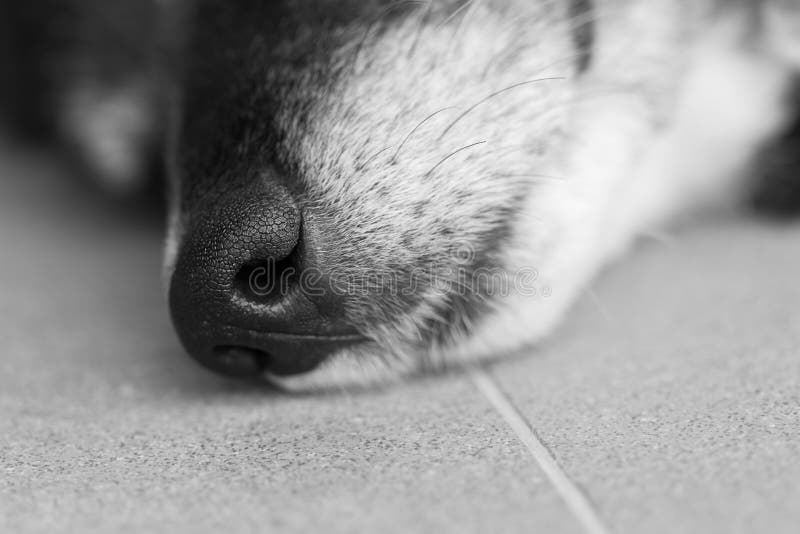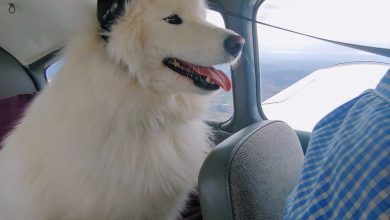Why is My Dog Panting at Night? Common Causes and What to Do as a dog owner.

Dogs are known for their active and playful nature, but sometimes they can behave in ways that leave their owners puzzled and concerned. One such behavior that many dog owners have witnessed is panting at night. If you’ve noticed your furry friend panting excessively during the nighttime, you may be wondering what could be causing this behavior.

While panting is a normal way for dogs to regulate their body temperature, there are several reasons why it might occur at night. In this blog post, we’ll explore some of the common causes of panting in dogs at night and what you can do to help your four-legged friend get a good night’s sleep.
Why my dog paints at nights?
Dogs pant at night for several reasons, such as regulating body temperature, anxiety, pain, and respiratory problems. It’s essential to observe their behavior and try to identify the underlying cause. If panting persists or is accompanied by other symptoms, it’s best to seek veterinary attention.
More reasons why your dog pant at night
Normal Reasons for Dog Panting at Night:
There are several normal reasons why dogs pant at night, including exercise, excitement, and heat. We’ll discuss each of these reasons in detail and how to differentiate them from abnormal panting.
Medical Conditions that Cause Dog Panting at Night: Panting can also be a sign of an underlying health issue in dogs. Some of the medical conditions that can cause panting in dogs at night include heart disease, respiratory problems, and pain.
Heart disease
Dogs can develop various types of heart disease, such as congestive heart failure, arrhythmia, or valve disease. These conditions can cause the heart to function improperly, leading to a buildup of fluid in the lungs, and making it difficult for your dog to breathe. This, in turn, can cause your dog to pant excessively, especially at night. Heart disease can be caused by genetic factors, poor diet, or other health issues such as obesity.
How prevent
To prevent heart disease, make sure to provide your dog with a healthy diet that is rich in nutrients and low in processed foods. Regular exercise is also important, as it can help maintain a healthy weight and reduce the risk of heart disease. Genetic factors may also contribute to the development of heart disease, so it is important to know your dog’s family history and seek veterinary attention if you notice any symptoms such as coughing, fatigue, or difficulty breathing.
Respiratory problems
Dogs can develop various respiratory issues that can cause panting, such as asthma or COPD. These conditions cause the airways to narrow, making it harder for your dog to breathe.
Panting helps dogs compensate for the lack of oxygen in their lungs, and this can occur at night when their body is at rest. Respiratory issues can be caused by environmental factors such as pollution or allergies, or genetic factors such as brachycephalic breeds with short snouts.
How to prevent
Preventing respiratory issues, try to keep your dog away from environmental factors that can cause respiratory problems, such as cigarette smoke, pollution, or allergens. Additionally, make sure your dog’s living space is well-ventilated and clean.
If you have a brachycephalic breed with a short snout, be extra cautious as they are more prone to respiratory issues. Regular exercise is also important, as it can help maintain a healthy weight and reduce the risk of respiratory issues.
Pain: If your dog is in pain, such as due to arthritis or a recent injury, they may pant at night as a way of coping with the discomfort. This can cause anxiety and restlessness, leading to a disturbed sleep. Pain can be caused by injuries, genetic conditions, or aging.
How to prevent
Pain: If your dog is in pain, such as due to arthritis or a recent injury, they may pant at night as a way of coping with the discomfort. To prevent pain in dogs, it is important to provide regular exercise to maintain healthy joints and muscles.
Additionally, make sure your dog’s living space is safe and free of hazards that can cause injuries. If your dog is experiencing pain, seek veterinary attention immediately to determine the cause and appropriate treatment.
How do you calm a dog from panting at night?
Depending on the cause of your dog’s panting, there are several things you can do to help them includes
Provide a comfortable sleeping area: Make sure your dog has a comfortable bed in a quiet, dark, and cool room. Consider providing a cozy blanket or pillow to make your dog feel more comfortable.
Reduce loud noises and bright lights: Loud noises or bright lights can make your dog feel anxious or stressed, so try to keep their sleeping area as quiet and peaceful as possible. Consider using white noise or a calming music playlist to help drown out any external noises.
Spend quality time with your dog during the day: Dogs crave attention and affection from their owners, so try to spend quality time with your furry friend during the day. Go for walks, play fetch, or cuddle on the couch to help your dog feel loved and cared for.
Consider using calming aids: There are several products available that can help reduce anxiety and stress in dogs, such as pheromone sprays or diffusers, calming supplements, or even a weighted blanket.
Consult with your veterinarian: If your dog’s panting at night persists despite your efforts, it’s best to consult with your veterinarian. They can help identify any underlying medical or behavioral issues and recommend appropriate treatment options.
In some cases, panting at night can be a sign of a serious medical condition that requires immediate veterinary attention. We’ll explain when it’s necessary to seek veterinary help and what to expect during your visit.
How long does it take for my dog to stop panting?
The duration of panting in dogs depends on the underlying cause. If the panting is due to exercise or heat, it may stop within a few minutes after the activity has stopped, or the dog has cooled down. However, if the panting is due to an underlying medical condition, it may continue until the condition is treated. For example, if your dog is panting due to pain or anxiety, it may take some time for the medication or behavioral interventions to take effect
Bear it mind dogs can still paint while sleeping. Panting is a natural mechanism for dogs to regulate their body temperature, and it’s not uncommon for them to pant while sleeping. However, if the panting is excessive, loud, or accompanied by other symptoms such as restlessness, it may indicate an underlying issue that needs to be addressed. It’s essential to observe your dog’s behavior and seek veterinary attention if necessary.
Dogs are prone to panting at Night
Just like people, some dogs are more prone to panting than others. For example, Bulldogs and Pugs are breeds with short snouts that can make breathing difficult, leading to heavy panting. Shih Tzus have long hair that can make it hard for them to regulate their body temperature, while Huskies can overheat in warmer climates, causing them to pant heavily.
Golden Retrievers are a breed that can become overweight, which increases the risk of heart disease and respiratory problems, leading to heavy panting. However, any dog can experience heavy panting due to heat, exercise, anxiety, or medical conditions. If you notice your furry friend panting excessively, don’t panic, but it’s a good idea to monitor them and seek veterinary attention if necessary.
Conclusion:
Pevention is key in maintaining the overall health of your dog. By providing a healthy diet, regular exercise, and proper living conditions, you can reduce the risk of heart disease, respiratory problems, and pain in your furry friend. Additionally, regular veterinary check-ups can help catch any potential issues early on, before they become more serious.






this article worth a million dollar, thanks for the wonderful information